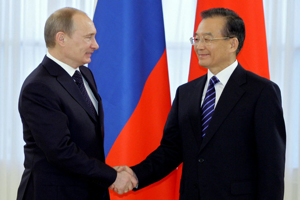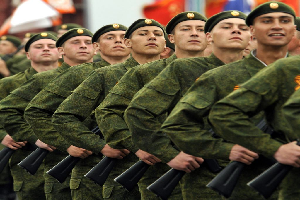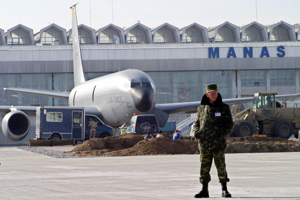China-Russia Summit Meeting Underscores Entente Over Central Asia
by Robert M. Cutler (04/03/2013 issue of the CACI Analyst)
The success of the recent summit between the Russian and Chinese presidents is significant not only for agreements reached between the two sides but also for the absence of disagreements over Central Asia. Speculation abounded after the Soviet break-up over possible Russo-Chinese competition; but by the time the U.S. military established a presence in Central Asia in support of Afghanistan operations, a Sino-Russian entente had begun to close over the region. Today Sino-Russian energy cooperation outside Central Asia and deepening political elite-level friendships signify the re-assertion of that bilateral entente as the U.S. diminishes its profile in Central Asia.

Russia's Diminishing Power Projection Options In Central Asia
by Roger N. McDermott (03/06/2013 issue of the CACI Analyst)
On February 17-21, Russia conducted its first surprise military inspection exercise in twenty years. The exercise in the Southern and Central Military Districts (MDs) tested combat readiness levels in key formations. These involved the elite Airborne Forces (VDV), Ground Forces brigades, Military Transport Aviation (VTA) and the defense ministry’s 12th Main Directorate. The top brass criticized the performance of officers and soldiers and equipment deficiencies following the exercise, which also revealed the limited power projection options the Russian military possesses in relation to Central Asia.

What Options For U.S. Influence In Central Asia After Manas?
by Jacob Zenn (03/06/2013 issue of the CACI Analyst)
Kyrgyzstan has made clear that the U.S. must withdraw all of its troops from the Transit Center in Manas when the current lease agreement expires in the summer of 2014. During the ten-plus years of U.S. presence in Afghanistan, the U.S. depended on Central Asian countries, particularly Kazakhstan, Kyrgyzstan, Uzbekistan and Tajikistan, to funnel military supplies through the Northern Distribution Network into Afghanistan. This led to an increase in U.S. military and political influence in Central Asia. However, with the U.S. withdrawal from Afghanistan and Kyrgyzstan opposing continuing the lease, there are doubts whether the U.S. will retain any influence in Central Asia after 2014.









 Book S. Frederick Starr and Svante E. Cornell,
Book S. Frederick Starr and Svante E. Cornell,